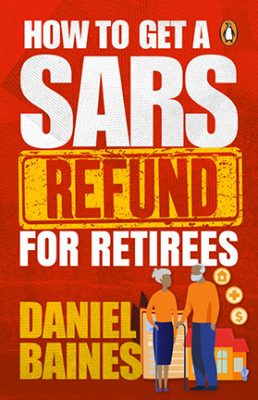The financial benefits of moving to senior living sooner rather than later
Around 40 per cent of baby boomers say that they will work until they die. And yes … for some, it’s about continuing to find meaning and engagement in their lives. But for others, it’s a matter of retirement being unaffordable. In a world where people are living longer and living expenses are rising, how do you ensure that you can grow older living the life you want to, and not the one you have to?
According to Barry Kaganson, CEO of Auria Senior Living (Auria), one aspect that doesn’t always get looked at in detail is how and where you plan to live in your later years – and what financial impact that choice can have. Some people want to live as long as they can in the home they have known for years, while others plan to move in with their adult children. Some simply downsize to a smaller home. Then of course there is the option of moving into a retirement village.
However, not all senior living options are the same … and it makes sense to look at what are correctly termed continuing care retirement communities. These combine residential accommodation with lifestyle amenities and health and wellness services for older adults. The continuum of care model allows residents to receive appropriate care and support should their needs change, without them having to move away from the community.
From a financial perspective, there are three clear benefits to moving into a senior living community.
Your biggest expense – A home – de-risked
Owning a home always comes with expenses. Most retirees are no longer servicing a home loan but there can still be significant costs attached to insurance, maintenance and repairs – not to mention the hassle factor. Moving to a life rights community ensures that you have a home for the remainder of your life, but without the unpredictable and often expensive costs that can wreak havoc on a limited budget.
More affordable on-site services and healthcare
One of the benefits of moving to a senior living community is the fact that so many services can be accessed on site. Residents have access to a variety of healthcare providers such as doctors, physiotherapists and biokineticists within each community. Specially tailored fitness and other wellness programmes are available, as well as lifestyle services such as hairdressers and coffee shops, and various entertainment and dining options. Aside from being quick and easy to reach, one of the chief benefits to residents is that they are able to benefit from the economies of scale involved. In other words, the costs to residents can be kept reasonable, and predictable.
Greater savings are possible with an earlier move
There are many reasons to think through the timing of your move carefully. The most obvious might be making sure that you get into the community that you want to be in, and to be able to make your decisions when there are multiple choices available rather than when a crisis forces you to compromise. “One of the other important benefits is the fact that you can save a significant amount of money just by moving earlier. The sooner you fix your living costs around a predictable set of expenses, the more financial certainty you will likely have,” says Kaganson.
Although the average global age of moving into a senior living community is 78, some communities are aimed at people aged 70-plus. The benefit of moving into a village early on is that you can move in and live completely independently, just as you would anywhere else, knowing that care is on hand should you need it. Also – big plus – it allows you to delegate many day-to-day chores to an on-site management team, which gives you the time to do things you want to do, rather than what you have to! This is a game-changer, at any age! Details auria.co.za

Here’s a useful book to assist you if you’re about to (or have recently) retired, to understand how tax works in relation to your retirement, ensuring you can make informed, tax-efficient decisions regarding your retirement savings. In How To Get A SARS Refund For Retirees, Daniel Baines helps you to get more out of your retirement savings, and exposes the pitfalls you need to look out for to avoid nasty surprises.
The book will also provide guidance on the methods available to reduce your tax liability to ensure you pay the least amount of tax legally possible … so more money in you back pocket! It explains how to effectively utilise certain tax exemptions and make the most out of tax credits, which are only available to those over the age of 65 years.
In addition, it will explain how you can access a possible tax refund, and how other types of income you may earn to supplement your pension, such as rental income and dividends, are taxed. Penguin, R127






